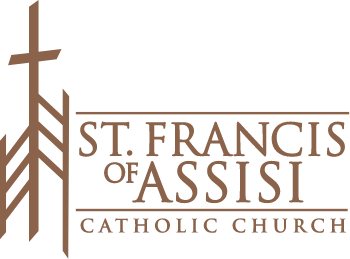In all my years of ministry, teaching junior high, high school, college, and adult formation, it has been my experience that the Catholic teaching on divorce is one of the most misunderstood teachings. Both in the practical teaching of the subject and the pastoral care, divorce quite simply, is messy.
First and foremost, the Catholic Church holds marriage in high regard, viewing it as a sacred covenant between a man and a woman, which mirrors the union between Christ and His Church (cf. Ep 5:32). This covenant is indissoluble, meaning that once validly entered, a marriage cannot be broken by any human authority or for any reason other than death.
“The Lord Jesus insisted on the original intention of the Creator who willed that marriage be indissoluble” (CCC 2382). This emphasizes that marriage, from a Catholic perspective, is not merely a legal contract but a spiritual unbreakable bond.
However, the Church knows that we are in a fallen world, there are situations where separation may become unavoidable. There are conditions under which the separation of spouses while remaining married is considered acceptable, such as cases of adultery or abuse (cf. CCC 2383, 2384). It is crucial to understand that while physical separation may be allowed, the marriage bond remains valid unless an annulment is granted, indicating that the marriage was void from the beginning due to specific circumstances.
Annulment is a declaration by the Church that a marriage thought to be valid according to Church law actually fell short of at least one of the essential elements required for a binding union (cf. CCC 2386). Unlike divorce, which falsely claims to dissolve a marriage, an annulment is a recognition that a valid marriage was never actually consummated.
The Catholic Church’s teaching on divorce seeks to uphold the sanctity of the marriage covenant, emphasizing reconciliation and healing within the Sacrament of Marriage whenever possible. While acknowledging the complexities and challenges that couples may face, the Church encourages spouses to work towards forgiveness and unity, reflecting the forgiving love of Christ.
When this does not happen the annulment process can be requested, and a civil divorce can occur. A civil divorce resolves many of the practical issues of separation, such as asset ownership, financial responsibilities, and child custody.
Without an annulment for a previous marriage an individual would not be allowed to enter into a marriage. This is a heavy burden for many, which brings us to the second area of messiness – the pastoral care of the divorced.
I come from a broken home. The chances that you have been affected personally by a divorce are extremely high. If divorce has not touched your parents, your own, your spouse’s parents, siblings or your children’s marriages then you should count yourself among rarefied air in today’s culture.
Divorce among Catholic couples is statistically about as common as it is in the general population. And yet I have found that at Catholic parishes across the country our churches would score very low in outreach and ministry to those in this state of life.
Going through a divorce is usually one of the lowest points of a person’s life. The emotions can vary greatly but many can experience a sense of failure, depression, extreme anxiety, financial hardships, overwhelming concern for the children, lost friendships, crisis of faith, and fear of being judged.
This is why, we as the People of God, must do a better job of walking with those going through this very difficult time. Reaching into the messiness we must make available our time, talent and treasure to let them know that they are not alone. They are loved and have a family that loves them.
Just has marriage or baptism can be moment for individuals to encounter the Church, so to, amazingly enough, separation and divorce can be a moment to encounter the Church. Jesus came to heal the broken. Jesus does not run from our messiness. The messiness of our lives is precisely where the Lord desires to meet us, love us, forgive us, heal us, and make us new again and again.
Chris Stewart — SFA Theologians Guild Member

